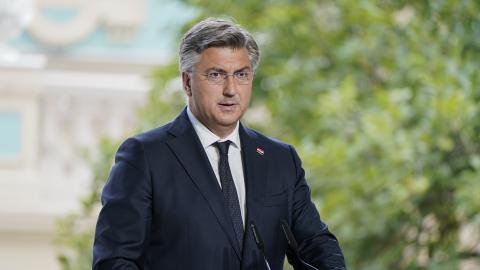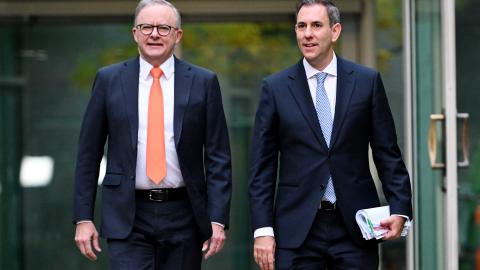The Labor government’s response to the Varghese Review about future funding for strategic policy work is hardly a barbeque stopper, coming as it does a few days before Christmas. But it matters to those independent experts who make their living in the think-tank and policy world.
Organisations engaged in policy work are strange things. Their worth is not tangible or immediately obvious. They must deal in facts, but their real value is building on facts in offering analysis, assessment and new ideas, which inescapably have subjective and speculative elements to them.
Advancing and improving policy means contesting and criticising the government and its actions. This means governments must be principled and brave enough to fund organisations and individuals that may make life difficult for them. It is a necessary democratic indulgence that keeps thinking ahead of the curve and leads to better policy outcomes.
This goes to the heart of what the review is trying to achieve: balancing laudable principles of accountability and usefulness to Australian policy on the one hand with notions of contestability and creative destruction of ideas on the other. Whether a good balance is achieved will depend on the wisdom and sincerity of the government in implementing it.
According to the accepted recommendations, core funding for five years should be competitive. Currently, all core funding that supports the operations of entities is non-competitive. This change is sensible. I work primarily in an American think-tank ecosystem that has superior resources but is more competitive and imposes far more onerous KPIs in return for compensation. The money American think tanks receive from private foundations, corporations, and through bequeathing is enormous. Australia cannot reproduce the American system, which puts even more onus on entities to make their case and compete for finite resources from the public purse.
The issue is what successfully competing looks like. One accepted recommendation by the government is that a Secretaries’ Committee (SCNS) comprising top bureaucratic leaders in the national security space should set annual priorities against which departments and agencies are given the freedom to make funding decisions that align with these centrally determined priorities.
This is an understandable attempt to ensure publicly funded strategic policy work is useful and relevant to the government. However, there is likely to be disagreement between national security entities as to what the key priorities ought to be.
We should be glad ASPI took on this controversial research. How will funding of awkward issues work under the new regime?
For example, there remain differences with respect to how one should engage, compete with, and counter China. As the review observes, the Australian Strategic Policy Institute’s work on exposing Chinese policies when it comes to the persecution of Uighurs, cyber activities, and foreign interference had a significant impact and was groundbreaking in important ways.
I doubt all government national security entities and the ministers they report to would have been comfortable with, and supportive of, such research when it was being performed as it was always likely to disturb diplomatic relations with China. We should be glad ASPI took on this controversial research regardless. How will funding of awkward issues work under the new regime?
Let’s assume the Secretaries Committee agrees on a set of research priorities. What if an entity seeks to question or challenge not just specific policies but the peak priorities announced by the Secretaries Committee? What if they publish an analysis that exposes some of the announced peak priorities as misguided or counter-productive? Will this be prejudicial against that entity or individual in the next competitive round for funding, or what is the guarantee that it won’t? Without allowing some unencumbered funding and a safe space for free thinkers within the system, we will be poorer for it in a policy sense.
This gets us to government-funded think tanks and policy experts being obliged to avoid gratuitous criticism of the government and its policies. This is what thin-skinned governments want. Facts might be objective but the interpretation of the meaning of facts is often unavoidably subjective. This is because all analytical minds are shaped by frameworks that are formed from not just facts but different methodological approaches, ideologies, and values – the latter categories being inherently contested. What commentary counts as gratuitous rather than constructive is not always easy to determine. I don’t think we would want a central bureaucratic body or a minister to make that adjudication and base future funding decisions on these adjudications.
The bottom line is this. Much of the review is reasonable. Who could argue against the virtues of transparency and fair competition when allocating money, or insisting on high standards for research that is relevant to government? As always, the devil is in the detail. The question for the government is whether it seeks improvement and correction that comes from genuine contestability and even the rejection of some of its assumptions and policies, or mere conformity and obeisance in implementing the review.
Read in The Australian Financial Review.
Enjoyed this article? Subscribe to Hudson’s newsletters to stay up to date with our latest content.
















